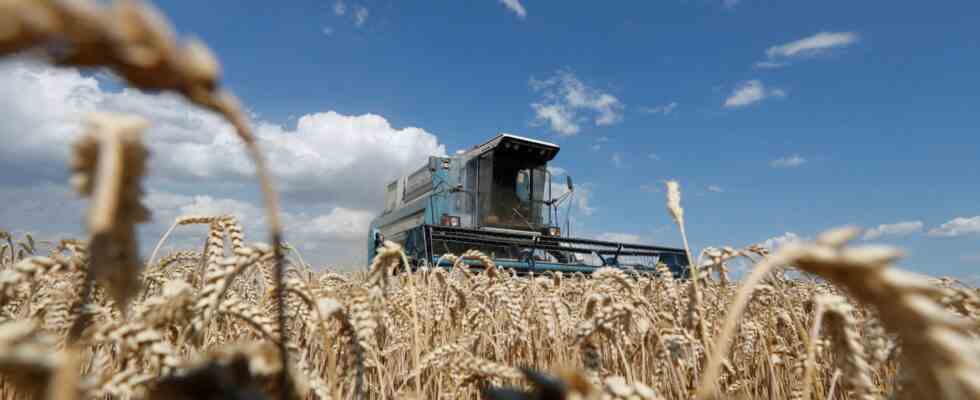Status: 03/03/2022 8:13 a.m
Wheat is becoming more expensive, and there is a risk of shortages of sunflower oil and soya. Fertilizer prices are also rising. The agricultural sector shows how dependent it is on the major supplier countries, Russia and Ukraine.
The Ukraine is considered the granary of Europe – especially the south and west of the country with their extremely fertile black earth soils, which cover around 70 percent of the Ukrainian area. The total arable land there covers 32 million hectares. This corresponds to a third of the arable land in the entire European Union.
From an agricultural point of view, these are gigantic figures and many agricultural experts also call the rise of Ukrainian agriculture gigantic over the past 20 years. At that time, most of the land lay fallow or was ineffectively managed. In the early 2000s, Ukraine still had to import grain itself. Today it is one of the ten largest grain exporters in the world. Mainly wheat is grown there.
Consequences for wheat importing countries in Asia and Africa
Russia and Ukraine together are key producers of wheat for the world market. “Overall, both countries account for almost 30 percent of the world’s wheat export volume,” says Martin Häusling of the Greens, agricultural politician in the European Parliament. If both countries fail now, it will have a massive impact on the world agricultural markets.
The war is already driving the price of wheat to unprecedented heights. There are already price premiums of 25 percent and more on the international grain exchanges. That’s one. The other thing is that a large part of the wheat exports from Russia and Ukraine do not go to the EU, but to the Near and Middle East. Häusling fears that declining production and difficulties with transport – for example because of destroyed rails, roads or ports – could cause a serious shortage of wheat there. European agriculture would have to fill the gap.
Sunflower oil, soya, animal feed
But it is not only wheat, not only grain from Ukraine, there are also other agricultural products. “I didn’t see soybeans in northern Ukraine 20 years ago, we never grew corn, and there were only sunflowers in the garden,” says Alex Lissitsa, who owns a farm in northern Ukraine and heads the Ukrainian Farmers’ Union stands. That was before the war with Russia.
In fact, the country is now also exporting large quantities of sunflower oil and soy products for the world market, and soy is in turn needed for meat production in the EU: as fodder for animal fattening. All of this together should drive up prices for the agricultural industry – which ultimately should also be felt by consumers.
“We therefore have to think carefully about whether we should continue to simply throw 70 percent of European grain to pigs, chickens and cows. We probably have to be more careful with resources there too,” says Häusling. “All this will come to European agriculture and we have to think about sustainable forms of agriculture and not rely too much on imports.”
Massive consequences for agriculture
In this respect, the consequences of the war for the European Union in terms of the supply of food can definitely be compared with those on the energy market: a large dependence on imports is becoming apparent.
This also applies to nitrogen fertilizers. Europe’s farmers obtain it primarily from Russia and Belarus. Because the production requires an enormous amount of energy, which is comparatively cheap there because of the natural gas deposits. However, there are now massive price increases. Nobody expects serious supply bottlenecks for agricultural products in the EU. But with the fact that food as a whole – also as a result of the war – is becoming significantly more expensive.
Consequences for agricultural imports of many countries
The United Nations World Food Program (WFP) has warned that the war in Ukraine will have serious consequences for the food supply. More than half of the food that the WFP distributes in crisis regions comes from Ukraine. Egypt gets most of its wheat imports from Russia and Ukraine. The same applies to Tunisia. In both countries, poor people in particular are in dire need of bread. The food is subsidized and has therefore so far been affordable for almost everyone. It is unclear whether the demand can be covered by imports from other countries. Other states face similar problems. In 2020, around 65 percent of Turkish wheat imports came from Russia.
Rising food prices as a result of the war – deliberations of the EU agriculture ministers
Holger Beckmann, ARD Brussels, March 2, 2022 2:23 p.m

